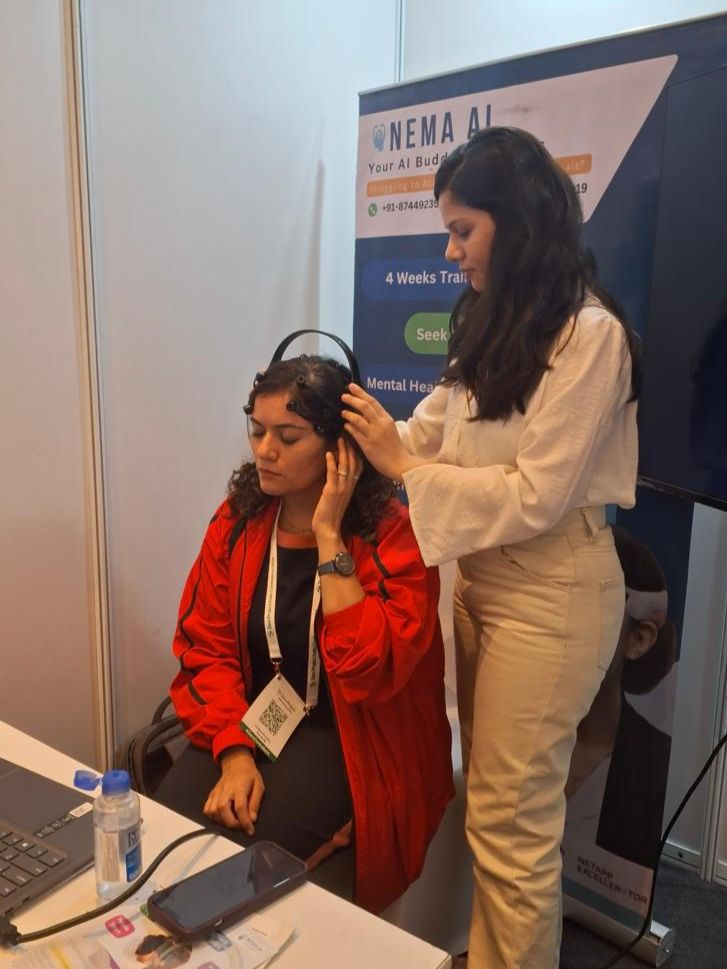Pretests in Mental Health

NEMA AI
Mental health is as important as physical health.
Many people are unaware of the problems that it can lead to.
In terms of living, it is often dismissed as something that a person is either going through.
Many of us go for annual health checks, but mental health check-ups are less common.
This is why pretests are important.
Pretests are short and quick tests that can help anyone. They help in seeing the early signs of emotional and mental problems before they become huge.
A student who cannot focus in class may have a condition. However, people around him think that it is because he is not studying and that he is a bad kid.
Pretests can change this thought. They provide people with issues they might have, and then they can seek more help. It is not a full diagnosis; it is like a basic checkup to see what you might have. Based on that, you can increase your productivity. Because not everyone is the same.
What are presets, and how do they help in mental health?
A preset in normal means, a test used to detect whether someone may have a mental health issue, a learning problem, or difficulty understanding something.
These checks need to be common in schools, clinics, workplaces, and medical centers.
People are afraid of labels about having a mental health issue; however, they are not something to be scared of. They need to be looked into and evaluated before they can help prevent it.
A pretest might reveal that a student struggles with attention, or an adult who is having trouble remembering.
Some tests for pretests are:
Pediatric symptom checklist (PSC): This helps in checking if someone has behavioral and emotional problems in children.
Denver Developmental Screening Test: Is a test for early development in social, emotional, and language skills.
Mini-Mental State Examination (MMSE): Often used with older people to check their memory or if they have the disease dementia.

How are these pretests done?
It starts off when someone, a teacher, nurse, doctor, or caregiver, sees a problem. They will suggest a pretest, which might involve answering questions, observing behavior, or doing tasks.
Examples:
A 7-year-old boy is constantly doing things that are out of impulsiveness. It may include a potential sign for ADHD.
A 70-year-old worried about forgetting the road that he used to walk to from his childhood. May raise concerns for a cognitive test.
The entire purpose is the same: to see issues early so that help can be given early rather than later.
Why pretests matter
Pretests are valuable because:
1. See concerns early:
Many mental health conditions develop very early but are not seen.
Pretests help in seeing these early signs before they become something very serious. For example, always being moody or angry may seem normal, but it might be an indication of a mental health disease.
2. allow help:
The earlier the problem is seen, the easier and faster the treatment can begin, whether it is therapy, learning, or medical help.
3. Proper guidance:
Pretests are not generic. They help match people to the right kind of issue they might have. For example, a child with certain speech-related issues can get language therapy, and he/she can focus on languages specifically, not just normal tutoring.
4. Save money and time:
Seeing these issues prevents more cost and time that will be invested if these tests aren't done.
5. Supports everyone in a way
Parents, teachers, and everyone can get clear knowledge about a child's needs. A son can get clear information on why their parent is behaving that way. This will reduce confusion and blame.
Pretests across different ages
Young children: Detection of autism and ADHD helps children get the right care during their years of growth.
Teens: Quick emotional check-ups can tell us about depression, anxiety, or any other important issue.
Adults: A pretest can identify workplace stress and burnout, which can prevent bigger problems later.
Older adults: Memory and mood changes can reveal dementia, and then they can improve their quality of life and plan for their future.
Challenges and Drawbacks
While pretests are very helpful, they have certain problems:
False results: Sometimes a pretest can tell us that we have an issue when it is not there, or it can miss an issue that we do have.
Limited access: Many people lack resources or people who can help conduct these tests.
Cultural barriers: Questions may not fit all cultures, as what might be normal in India might be a big issue in other countries.
Stigma: Some people avoid talking about mental health problems because they will get judged.
What can be the impact in the real world?
A 4-year-old speaking on time because they took a pretest and now know that therapy helps her with communication.
A factory worker feeling low now knows he has bipolar disorder and takes medications that help him. This happened due to the pretest, which showed signs.
A mother is now revealed to know that she is showing early signs of dementia, and now her family can make plans for her care.
The future:
The future of mental health will start with pretesting. Technology is now transforming, and pretests are being extremely helpful; it is the change that needs to happen. Parents can now track and be informed, knowing the complete knowledge of why certain things are happening with their kids and what can be the next solution for it. Researchers are exploring how artificial intelligence can detect subtle changes in speech or behavior that humans might miss.
We do want to clarify that technology should be seen as a tool, and it is not a replacement. Human expertise and empathy remain extremely important in health care.

Conclusion
Pretests are powerful, accessible tools that benefit people of every age group. They can see hidden problems, provide timely help, and improve the lives of those around them. Mental health deserves the proactive help that is often given to physical health. Just like we regularly go for physical health checkups and mental health checkups, using pretests must be normalised
Nema AI does just this: they identify and address mental health concerns. They use an EEG-based headset that records signals.
We use simple tests that help in finding early signs of learning or emotional difficulties.
It keeps a record of changes in behavior over time.
It can provide families and professionals with quick and reliable insights without a long waiting time.
It can suggest to you what steps you need to take next, like probably visiting a specialist or starting support.
You can book a consultation today by going to our website.
